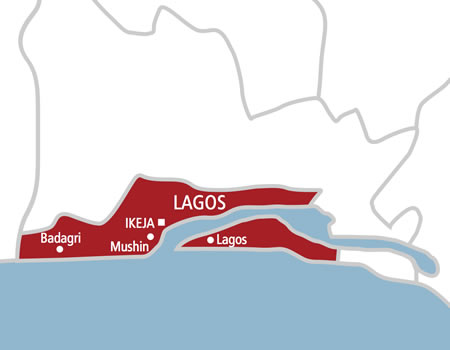Key players in the Lagos State property sector have outlined strategies to tackle the over three million housing deficit in the nation’s commercial capital.
This was stated at the Co-Creation Workshop on Lagos State Development Plan (LSDP) 2030-2050 Housing Initiative organised by Rethinking Cities in partnership with Heinrich Böll Foundation.
Though there has been no verifiable data about the actual housing deficit in Lagos, it is estimated at over three million as the state’s 22 million citizens lack access to modern housing units.
Lagos was ranked 171 out of 172 in the list of most liveable cities in the world for the first quarter of 2022, according to the latest 2022 Global Liveability Index as concerns rise over inadequate housing units for the majority of the state’s population.
- 4 injured, one in coma as car, okada collide in Kwara
- We lost a great icon and man of integrity – VP Shettima
Speaking during the workshop, CEO of Northcourt, Ayo Ibaru, explained that the demand for land and real estate had outrun the supply over the years.
He stated that statistics released by the Lagos State Government also revealed that roughly 88 new migrants arrived into Lagos every hour.
He stated that the state government had to step in to address tenancy issues to prevent poverty rate from going higher while also encouraging property investors to adopt mixed-income houses across the state to reduce poverty and promote social cohesion.
He said, “To achieve increased housing supply, the government should focus on driving policies on monthly rental payments.
“Lagos State has a strong track record for its investment in infrastructure, and in 2021, it raised finance from the capital market to complete and commence more infrastructure projects. Making investment in infrastructure would likely increase investment in the real estate market.
“The partnership and network support initiatives would strengthen the partnership between the private sector and the state government at different levels. Creating affordable housing investment vehicles has the potential of attracting investment from development finance institutions.”
The Executive Director of Rethinking Cities, Deji Akinpelu, giving an insight into the workshop, said, “One of the interest areas is inclusive housing to be provided through the vehicles of the mixed-income housing and social housing models.
“The LSDP identifies a number of initiatives through which the Lagos state government wants to promote this model such as; Incentivise developers to invest in mixed-income/ inclusionary and environmentally sustainable housing in new urban areas, e.g., by offering tax rebates and waivers on permits cost, and allocating land at subsidised rates; Invest in shared infrastructure such as roads, bridges, water, sewage management etc. to incentivise developers to develop mixed-income inclusionary housing; introduce inclusionary housing policy as an instrument to create mixed-tenure, mixed-income developments and increase the number of affordable housing units.”

 Join Daily Trust WhatsApp Community For Quick Access To News and Happenings Around You.
Join Daily Trust WhatsApp Community For Quick Access To News and Happenings Around You.


